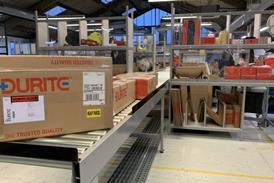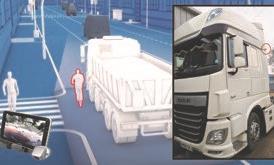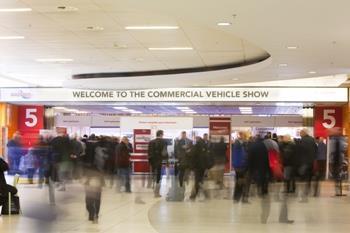
The CV Show is back with a bang, with all but two of the major truck builders making an appearance.
If 2011 was the return of the “full-fat” CV Show, then 2013 will be a full-cream, gold-topped event, with all but two of the major truck builders using the show to launch new product ranges. After a couple of uncertain years in the post-2008 recession, when only the commitment of the show’s owners kept it alive, the CV Show and Workshop has steadily climbed back to reclaim its place as a major international truck show.
The heavy truck makers will also be joined by a good complement of van and trailer manufacturers; while it is true that vehicle OEMs represent only a small percentage of the circa 400 exhibitors, it is also true that they are a key cornerstone of the show and help pull in the visitors.
Great mix
Paul Everitt, outgoing chief executive of CV Show partner the SMMT, says: “There is no doubt that for many visitors, they want to see new vehicles. But the best experience for visitors is that they do a lot of business with other exhibitors. One of the great things about the show is the mix of different types of exhibitors.”
With bookings running almost 30% ahead of the same time in 2012, equating to more than 26,000m2 of stand space sold by the end of January, the 2013 show will fill halls 4 and 5 of the NEC and most of the adjacent hall 3A.
“We are confident the show will be bigger than last year,” confirms Everitt. “There is a different mix each year of vehicle manufacturers and exhibitors and we expect to see that again this year. The positive change this year is that we have seen a lot of bookings from trailer manufacturers, which is good to see.”
In the ‘odd’ years when the Hannover Show does not run, the CV Show is one of only eight events to be given international status by the body that co-ordinates global shows, OICA, which should mean last year’s clash with the Dutch RAI show is not repeated.
“From an industry perspective, it is important and we are pleased it is internationally recognised,” says Everitt. “I would like to think it would influence larger vehicle manufacturers. Internationally recognised shows have a higher level of support from global vehicle manufacturers and, in non-Hannover years, we would want the CV Show to be seen as the major show in Europe.”
Geoff Dunning, chief executive of CV Show partner the Road Haulage Association, also believes OICA recognition boosts the status of the show. “It has some effect on the budgeting decisions European manufacturers make,” he says. “We need to jointly plan big shows better than we have in the past.”
And, according to Nick Jones, chief executive of the Society of Operations Engineers, which includes third partner IRTE Services, the CV Show has long been an international show as far as his members are concerned. “The CV Show is the major show they would attend,” he says. “It has been an international show for some time, so OICA is recognising that fact. Certainly, in 2013, the CV Show will be the only international show in Europe.”
Talking point
The timing of this year’s show eight months before the cut-off between Euro-5 and Euro-6 emissions limits means a key talking point will be whether operators will scramble to buy as many of the last Euro-5s as possible before the deadline, or hang on to get their hands on the newest technology.
“I feel both approaches will be covered,” says Jones. “Some people will run trucks for longer, so the question will be how long do you run them and what is the relative cost against Euro-6?”
Everitt believes there will be a mix of approaches to the switch to Euro-6. “I don’t think there will be a clear-cut approach from the market place,” he says. “There will be a spread of decisions being made and people will want to hedge their bets.”
Dunning agrees. “Ask 10 operators and you will get 11 answers,” he says. “There isn’t one answer. But the experience of people who have already got Euro-6 trucks on the road is interesting: one operator running almost identical Euro-5 and Euro-6 vehicles finds the Euro-6 is producing better fuel consumption. But Euro-6 will be more expensive, and whether that will bottom out as demand increases is another question.”
Question time
So while the focus of most manufacturers’ stands will inevitably be their new Euro-6 offerings, visitors will have many other questions on their minds. “Euro-6 will be the big thing in 2013, but operators are interested in how they can get the best performance from whatever it is they are buying,” says Everitt. “So there will be the whole package around the operation, maintenance and monitoring of vehicles. At the past few shows, we have seen the increasing focus on telematics and improving fuel efficiency, and there are greater levels of sophistication coming to the market to support that.”
Going global
Global truck builders have to take a commercial view on whether the CV Show is worth attending, and with UK sales volumes remaining depressed since 2008, the expected sales uplift this year will see the best turnout of heavy trucks since the recession started.
“The majority of exhibitors stick with it and we are grateful for that support,” says Everitt. “But people will always make a decision if the show is for them or not. We are comfortable that, in any given year, certain people will be there and certain people won’t. The UK is a big market and most OEMs know they need to engage with the key customers here. So, overall, people are sticking with it and we will continue to see a strong proportion of light and heavy CV manufacturers that see the show as a good place to portray their products.”
Dunning adds: “I can’t say the truck makers have a duty to support the CV Show, but we are keen to have as many as possible exhibiting and they make a substantial contribution to the success of any show. In 2010, we ran the CV Operator show, which went very well and was more successful than some thought it would be, without the truck manufacturers. For many years, the CV Show has been as much about operation as acquisition. Also, we should not lose sight of the importance of the van market. There has been a massive increase in the number of vans on the road and that is an important part of the economy, just as the truck is.”
Value for money
Ensuring the CV Show remains value for money is also key, Jones says. “The cost of exhibiting has been kept under tight control, which is something we are keen to carry on,” he says. “We are not in it just to make profit, although, ultimately, we have to make some money as we put in a lot of effort and it is a big risk – but it is bigger than that. It is about supporting the industry, the people who work in it and its future development.”
EURO-6 MUST NOT DERAIL CARBON AGENDA
The impending arrival of Euro-6 will, once again, reduce emissions of local pollutants such as NOx and particulates at the expense of carbon dioxide – together with the demise of electric vehicle maker Modec and Smiths Electric yet to book a stand at the show, does this mean low carbon technology will take a back seat in 2013?
“I don’t think so,” says Everitt. “Low carbon and fuel efficiency are still core to most businesses and I’m sure there will be a big focus on it. But 2013 is the European Year of Air, when air quality is unquestionably back on the agenda. Euro-6 is an example of that and we would expect to see more of a balance between the focus on CO2 reduction and air quality. The electric and hybrid options that are out there play strongly to both agendas.”
Jones believes that while manufacturers are developing low carbon vehicles, the biggest barrier to more widespread adoption is the initial cost and government has to help prime the pump of demand. “Wind energy has taken off because the government is supporting it,” he argues. “For something to change on low carbon transport, the government has to be a key player.”
Whether buying Euro-5 or Euro-6, fuel remains an operator’s biggest cost and therefore a high priority, according to Dunning.
“Carbon and fuel are the same issue,” he says. “If you reduce fuel use, you reduce carbon emissions. That is something we have been trying to get the government to understand – if you ask hauliers what they are doing to reduce carbon emissions, they will probably say ‘nothing’. But if you ask them what they are doing to cut fuel consumption, they will come up with a long list of items.”
For heavy trucks, fossil fuels will remain the only viable option for the foreseeable future, though Dunning says gas has great potential as a low carbon alternative to diesel. He too wants to see more leadership from government on a long-term strategy for decarbonising road transport. “We need to know what the policy will be – and it can’t change year to year,” he says. “Last year, there was confusion because Defra and the Department of Energy & Climate Change were talking about bio-diesel and the DfT was talking about gas. What use is that? We need a long-term strategy.”

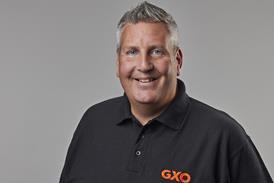
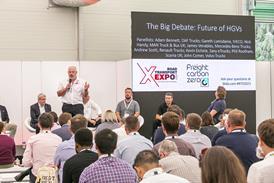
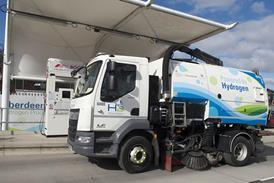


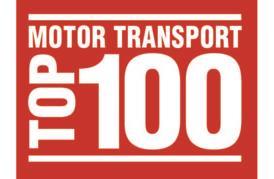


![Mercedes-Benz_eActros_600_(1)[1]](jpg/17820_mercedesbenz_eactros_600_11_978080.jpg)

